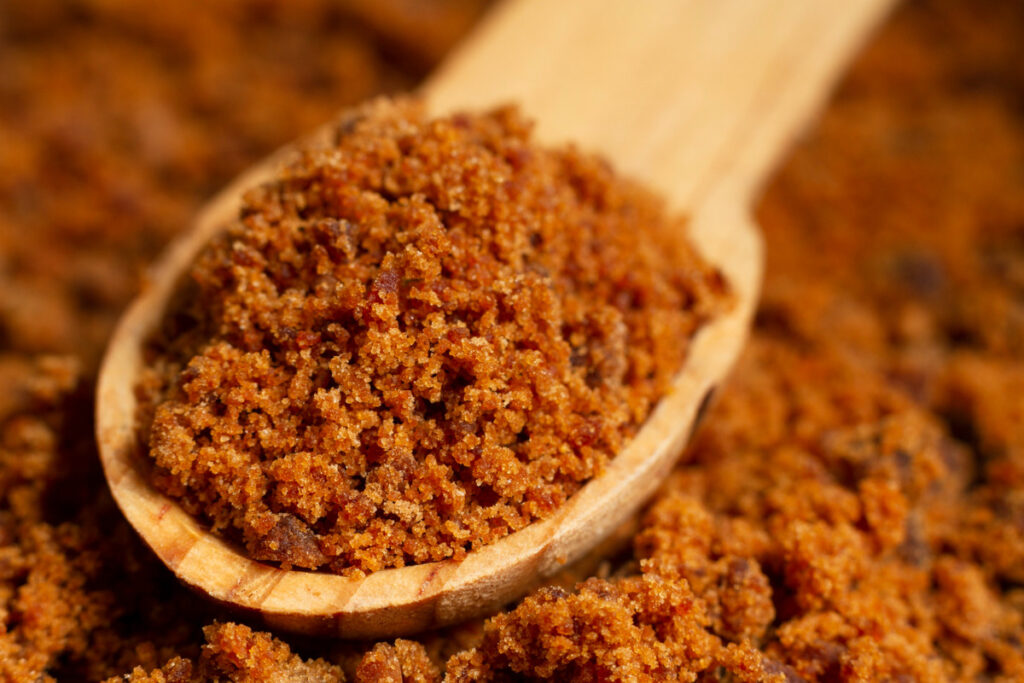Is brown sugar good for diabetics?
Many individuals with diabetes wonder whether brown sugar is a healthier alternative to white sugar.
Brown sugar is often marketed as a natural and healthier option due to its slightly higher mineral content, but it is important to consider how it affects blood sugar levels.
In this article, we’ll explore the impact of brown sugar on diabetes and help you make informed decisions about sweeteners.
Is Brown Sugar Good for Diabetics?
Brown sugar, while often seen as a better alternative to refined white sugar, is still a form of sugar that can raise blood glucose levels.
Though it contains trace amounts of minerals like calcium, potassium and iron, these nutrients are minimal and do not significantly alter its overall effect on blood sugar.
When consumed, brown sugar is broken down in the body into glucose, just like white sugar, causing an increase in blood glucose levels.
For diabetics, managing blood sugar levels is crucial and consuming sugar in any form can complicate this task.
Brown sugar contains sucrose, which is absorbed rapidly into the bloodstream, leading to spikes in blood glucose and insulin levels.
Therefore, while it may contain slight nutritional benefits, the overall impact of brown sugar on diabetes is no better than white sugar.
How Does Sugar Affect Blood Sugar Levels in Diabetics?
For individuals with diabetes, the body struggles to regulate blood glucose levels due to either insufficient insulin production or insulin resistance.
Consuming sugar causes a rapid increase in blood glucose, which can lead to hyperglycemia if not properly managed.
When blood sugar levels rise too high, it can lead to a range of symptoms, including fatigue, increased thirst, and frequent urination.
In the long term, consistently elevated blood glucose levels can lead to serious complications, such as nerve damage, kidney disease, and cardiovascular issues.
As a result, managing carbohydrate intake, including sugars, is key for maintaining blood glucose control.
The American Diabetes Association provides helpful guidelines on carbohydrate counting.
Brown Sugar vs. White Sugar: What’s the Difference?
Brown sugar and white sugar are chemically similar, both made primarily of sucrose, which is derived from sugar cane or sugar beets.
The main difference between the two is that brown sugar retains some of the molasses from the refining process, giving it its characteristic color and slightly different taste.
The molasses in brown sugar provides small amounts of minerals like calcium, potassium, and iron, but these quantities are too insignificant to have a meaningful impact on overall health or diabetes management.
Both brown and white sugar have a high glycemic index (GI), meaning they cause a rapid increase in blood glucose levels after consumption.
The glycemic index of brown sugar is only slightly lower than that of white sugar, so it does not provide any significant advantage when it comes to blood sugar regulation.
The Role of Fiber and Minerals in Brown Sugar
While brown sugar contains trace amounts of minerals, such as calcium and potassium, the quantities are minimal and unlikely to make a meaningful difference in diabetes management.
Additionally, the fiber content in brown sugar is negligible compared to whole grains, fruits, and vegetables, which are far better sources of fiber.
The fiber in foods helps to slow the absorption of sugars into the bloodstream, leading to more stable blood glucose levels.
However, since brown sugar lacks sufficient fiber, it does not provide the same benefits for blood sugar regulation that whole foods can offer.
For individuals with diabetes, consuming foods rich in fiber, such as vegetables, legumes, and whole grains, is far more beneficial for managing blood sugar than relying on sugar alternatives like brown sugar.
Natural Sugar Alternatives for Diabetics
For diabetics looking to reduce their sugar intake, there are several natural alternatives that can help satisfy sweet cravings without causing spikes in blood glucose.
Stevia, a plant-based sweetener, is one of the most popular options for diabetics, as it has no effect on blood glucose levels.
Erythritol, a sugar alcohol, is another option that has a very low glycemic index and is generally well-tolerated by individuals with diabetes.
Monk fruit extract is another natural sweetener that provides sweetness without affecting blood sugar levels.
These alternatives are often used in recipes and beverages and can help diabetics maintain a healthier, more balanced diet without sacrificing sweetness.
Managing Diabetes Through Diet: Tips and Guidelines
Managing diabetes through diet is essential for controlling blood glucose levels and preventing complications.
Focus on a well-balanced diet that includes lean proteins, healthy fats, fiber-rich vegetables, and whole grains.
Carbohydrates should be consumed in moderation, with an emphasis on low glycemic index foods that provide steady energy without causing blood sugar spikes.
Portion control is also crucial to prevent overeating, which can lead to elevated blood glucose levels.
Additionally, monitoring blood glucose regularly can help ensure that dietary choices are effectively supporting blood sugar control.
The Impact of Excessive Sugar Consumption on Diabetes
Excessive sugar consumption can worsen diabetes symptoms and increase the risk of complications.
Increased sugar intake can lead to higher blood glucose levels, making it harder to maintain diabetes control.
Excessive sugar consumption can also contribute to weight gain, which is a risk factor for insulin resistance and further complicates blood glucose regulation.
Over time, high sugar consumption can also damage blood vessels, nerves, and organs, leading to complications such as heart disease, kidney failure, and neuropathy.
Should Diabetics Use Brown Sugar in Moderation?
While brown sugar may offer some minor benefits over white sugar, it should still be used in moderation, if at all, by individuals with diabetes.
For those who want to indulge in sweetness, using alternatives like stevia or erythritol is a better choice for controlling blood glucose levels.
Diabetics can enjoy sweetness without the health risks associated with sugar by opting for healthier alternatives and practicing mindful portion control.
Natural Supplements to Support Blood Sugar Regulation
In addition to making healthy dietary choices, natural supplements can help support blood sugar regulation.
GlycoFortin is one such supplement designed to assist with managing blood glucose levels naturally.
GlycoFortin contains a combination of herbal extracts and minerals, including chromium, Gymnema Sylvestre, and Panax ginseng, which support insulin sensitivity and help regulate blood sugar levels.
By improving the body’s ability to process glucose, GlycoFortin can complement a healthy lifestyle and assist in keeping blood glucose levels stable.
If you’re looking to manage your diabetes effectively, it’s important to make informed choices about your diet and sugar intake.
While brown sugar may seem like a healthier alternative, it still poses risks for blood sugar spikes.
GlycoFortin offers a natural solution to support healthy blood sugar levels and enhance your diabetes management plan.
Visit the official GlycoFortin website to learn more about how it can help you maintain balanced blood glucose levels.










3 Responses